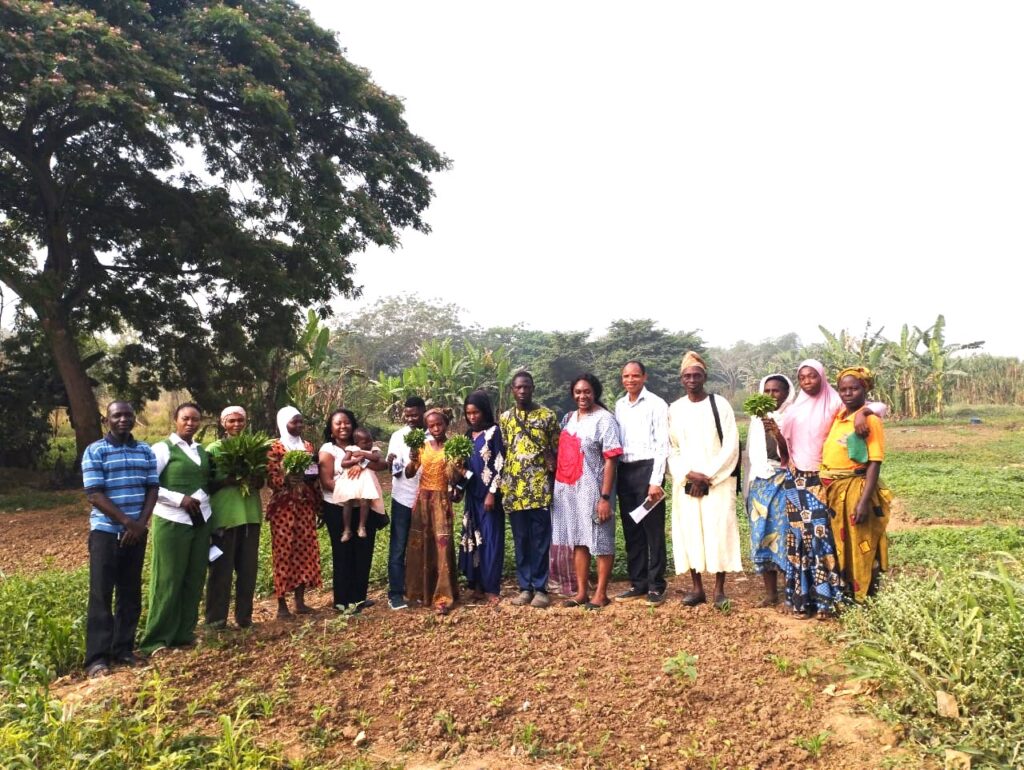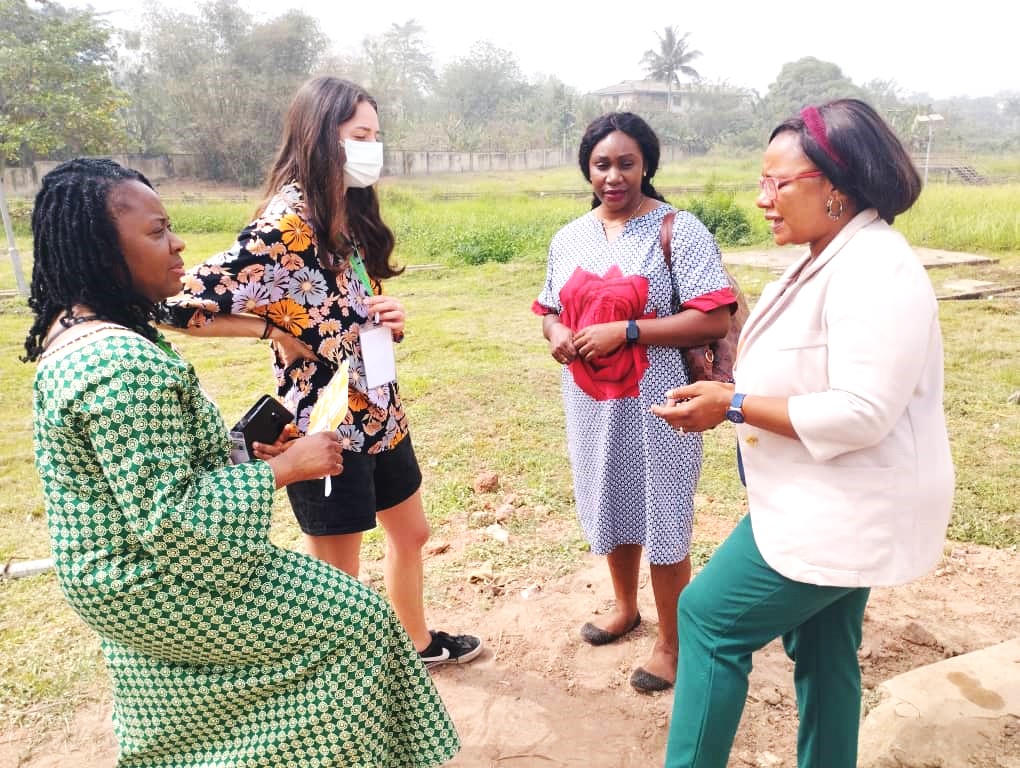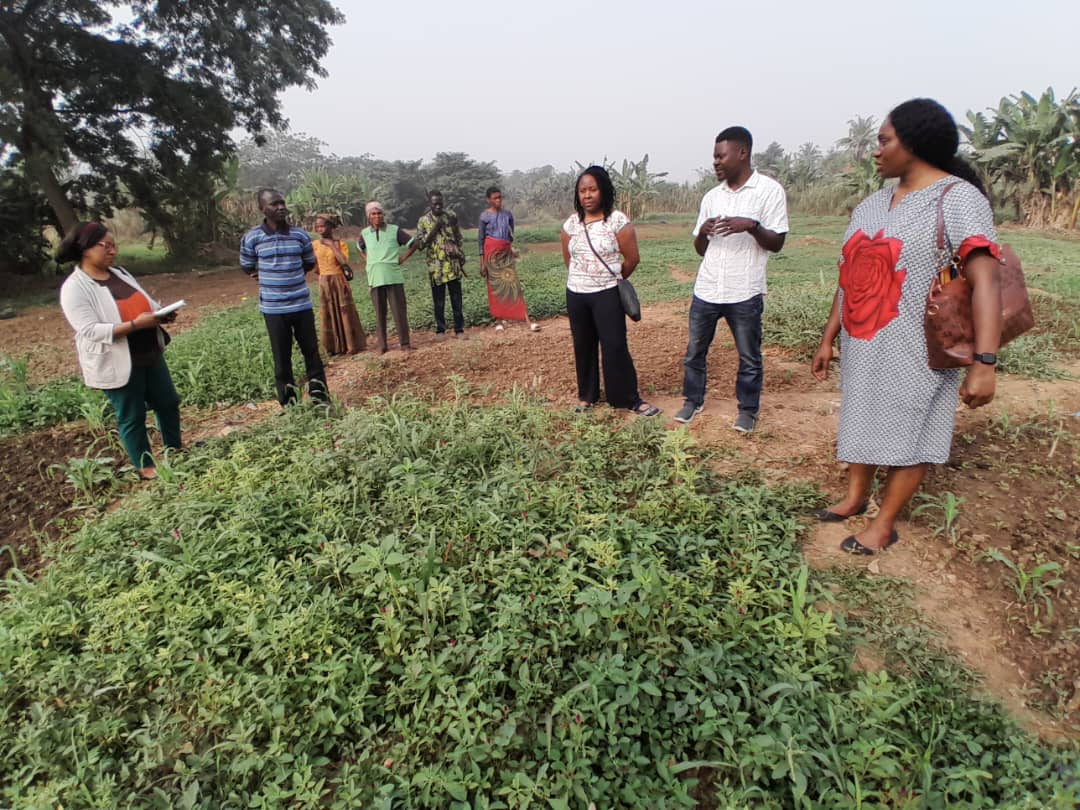
The multiple challenges confronting promoters of green livelihoods in Nigeria
The multiple challenges confronting promoters of green livelihoods in Nigeria
By: John Baaki (WEP), Anne-Marie Abaagu (WEP), Christy Aikhorin (WECF), Laura Bernard (WECF), Ijeoma Ladele (ECOMAWDI)
In the face of growing global environmental challenges, such as plastic pollution, loss of biological diversity, and climate change, negatively impacting living conditions, especially the vulnerable, the world is on its knees seeking for solutions.
One of the solutions that can simultaneously address multiple environmental challenges is green livelihoods. Green livelihood can be the answer, as it comprises different ingredients, just like a fruit salad. It is a concept that combines green living, green economic growth, and sustainable livelihoods.
“Green living is a means of developing sustainable habits in one’s daily life so that their daily routines work alongside the resources of nature instead of depleting them, or doing more long-term damage to the environment or ecological system[1].”
A project funded by the Dutch Government, implemented by a consortium of organizations is promoting green livelihoods in different countries of the world. The ‘Forests for a Just Future’ programme of the Green Livelihoods Alliance (GLA) contributes to the protection of tropical forests and the people who directly depend on those forests, such as indigenous communities. With partner organisations in Africa, South East Asia and South America, the GLA works to govern tropical forests in a sustainable and inclusive way.
Women Engage for a Common Future (WECF) is a member of the consortium that ensures gender mainstreaming across all aspects of the project, working with other women’s and feminist organizations. Although Nigeria is not a country where full activities of this project are being implemented, WECF still supports inclusive forest governance there. This is done through advocacy for actions that prevent forest degradation while involving women, youth and Indigenous peoples in forest management, and piloting green livelihoods that will enhance living conditions of the vulnerable while protecting the environment.
In the year 2021, WECF supported Environmental Conflict Mediation and Women Development Initiative (ECOMAWDI), a women-led non-governmental organization based in Ibadan, Nigeria, through Women Environmental Programme (WEP). ECOMAWDI conducted practical training on organic farming where farmers groups, women’s groups, members of the Organic Farmers Association of Nigeria, and community members from Ajibode community were taken through agro-ecological practices (e.g.crop rotation, shifting cultivation, soil fertility management and pest management practices) as well as agripreneur/agribusiness strategies. This training took place at Ajibode organic farm in the premises of the University of Ibadan.
This training was an instigator to move people away from unsustainable agricultural practices in Nigeria, which are characterized by intensive use of chemical fertilizers and pesticides[2]. Not only intensive farming contributes to greenhouse gasses emissions, it also degrades forests which can store CO2, thus mitigating climate change.
The training recorded some successes, as it was able to make some converts. It convinced some of the participants, who previously were not farming sustainably, to join the Organic Farmers Association of Nigeria, Oyo Chapter. This group has been allocated a plot on the Demonstration Farm of the University of Ibadan where their members farm organic vegetables. Thanks to the training, some participants, who were part of this training, have joined in farming organic vegetables.
According to Ijeoma Ladele, the Executive Director, ECOMAWDI, “the participants were particularly happy that they learnt organic pest control methods and how to prepare compost using the pit method. Even as they highlighted their need for funding and modern farm equipment, they were grateful for the new things they learnt.”
Between February 7th and 9th, 2024, representatives from WECF and WEP attended a series of workshops at the University of Ibadan, Nigeria. These workshops were part of the General Assembly meeting for the Integrated and Circular Technologies for Sustainable City Region Food Systems in Africa (INCiTiS-Food) program. Christy Aikhorin and Laura Bernard represented WECF, while Anne-Marie Abaagu and John Baaki represented WEP during this pivotal gathering. On February 8th, Ijeoma Ladele joined the group, facilitating a crucial meeting with individuals who have benefited from organic farming training. This training initiative, supported by both WECF and WEP three years prior, was implemented by ECOMAWDI. This collaboration underscored the commitment of both organizations to promoting sustainable agricultural practices in the region, demonstrating a tangible impact on the community by fostering environmentally friendly and sustainable food systems. “Thank you for following up. We are happy that you have come to follow up on us. This means so much to us and we are inspired to continue to do what we are doing. We are hopeful that we may one day receive support to address some of the challenges we are facing,” said Chief Mosudi Salimonu, leader of Ajibode organic farm.
As we interacted with the farmers, most of them women, to know how they have carried on after the training, we realized how the benefits from the training had been affected by several factors, testing the determination of the farmers to sustain the organic farming practice.
Some of these factors are:
- Climate Variability: Farmers face unpredictable weather events, including droughts and floods, challenging their ability to cultivate land consistently.
- Water Access: The farmers rely on natural water bodies for irrigation which they do manually using irrigation cans, since they do not have pumping machines to automate the process, consuming significant time and effort.
- Market Competition: Organic products compete with cheaper, conventionally grown alternatives, making market penetration difficult. Although there is no wide price margin between organic products and products grown using chemical inputs, many consumers go for the cheaper products, due to lack or low awareness about the benefits of organic products. This situation is discouraging when farmers invest their time and other resources to produce organically without corresponding demand for their products.
- Awareness Gap: The farmers explained how there is low public awareness about the benefits of organic farming, and how this has affected demand for organic agricultural products. So far, the efforts to get the government to support their cause through awareness-raising and policies that will promote the consumption of organic agricultural products have not yielded much results.
- Financial Constraints: Farmers struggle to secure funds for necessary investments like land rent and irrigation infrastructure.
Despite these challenges, we tried to instill hope in the farmers as we pointed out potential opportunities to advance the organic farming practice such as:
- Community Collaboration: Forming alliances with other organic farming cooperatives and other relevant sustainable organizations can enhance awareness as well as advocacy for organic farming benefits and influence policy for market incentives.
- Funding for Infrastructure: Joint efforts with other organizations to secure funding for irrigation systems could enable year-round farming, stabilizing livelihoods.
- Skill Enhancement: We recommended that the farmers seek partnership with the INCiTiS Food Living Lab at the University of Ibadan, through ECOMAWDI, to be equipped with skills in advanced agricultural techniques, such as hydroponics and aquaponics, as this offers avenues for innovation and productivity improvement.
For global efforts to combat climate change to be effective, groups like Organic Farmers Association of Nigeria and other sustainable groups that promote green livelihoods ought to be promoted and protected, as they play a vital role in the country’s climate change mitigation and adaptation actions. We call on the Nigerian government and other relevant stakeholders, to actively support promoters of green livelihoods as they are contributing to the achievement of a sustainable planet, for the good
[1] Stephanie, S. (2023). What is green living? https://greenly.earth/en-us/blog/company-guide/what-is-green-living
[2] Tosin, S., Segun, B., Ademola, J., and Adebola, O. (2013). Nigeria’s Small Scale Farmers’ Agrochemical Use: The Health and Safety Implications. In Journal of Sustainable Development in Africa, Vol 15, No.1, 2013. https://www.jsd-africa.com/Jsda/Vol15No1-Spring2013A/PDF/Nigerias Small Scale Farmers Agrochemical.Samuel Olowogbon.pdf




